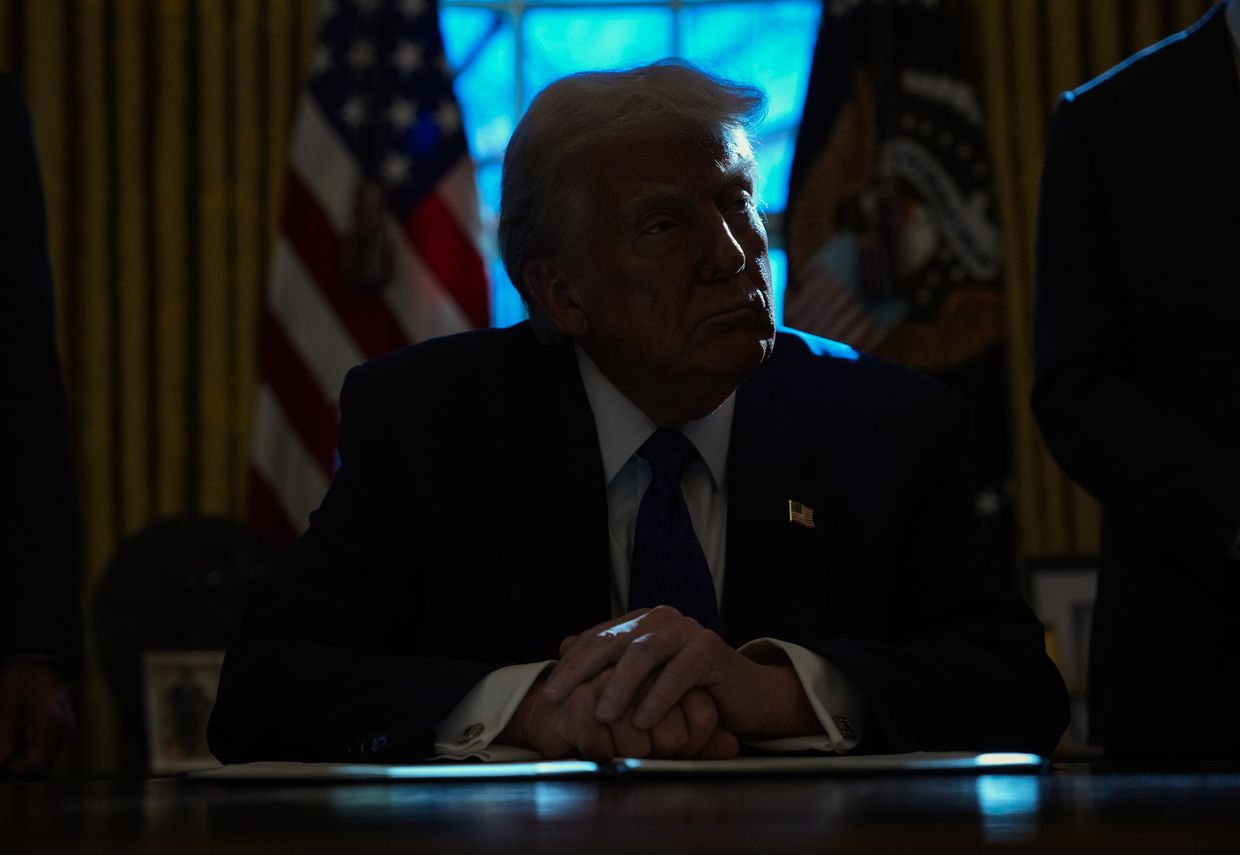Trump is trading Ukraine’s future for a quick win
The Munich Security Conference highlighted Europe’s need to strengthen its defenses as U.S. priorities shift.

U.S. Vice President JD Vance delivers a speech at the 61st Munich Security Conference in Munich, Germany, on Feb. 14, 2025. (Tobias Schwarz / AFP via Getty Images)
As many others have now concluded, this year’s Munich Security Conference (MSC) was pretty remarkable. Indeed, it may have been as defining an event as Russian President Vladimir Putin’s infamous 2007 speech, which marked a shift toward a more openly hostile Russian policy toward the West. That shift led to Russia’s subsequent invasion of Georgia in 2008, its initial invasion of Ukraine in 2014, and ultimately, the full-scale invasion of Ukraine in 2022.
Figures like U.S. Defense Secretary Pete Hegseth and U.S. Vice President JD Vance sent a clear message: Europe can no longer rely on the American security backstop. That realization hit hard. With Vance’s speech, the realization also set in that Europe and U.S. President Donald Trump’s America no longer share the same values or interests. Europe places far greater importance on the rule of law, fighting corruption, and curbing kleptocracy. Free speech laws also diverge.
These are the longer-term implications for Europe:
First, Europe must prepare to defend itself without the U.S. If NATO is no longer viable, European nations will need to drastically increase defense spending — potentially from 2% of GDP to 3% or perhaps even 5%.
Second, Europe may need alternative security alliances — potentially involving Turkey, Gulf states, or even China. The so-called “Reverse Nixon” strategy, where a Trump-Putin alliance seeks to isolate China, has been floated by the likes of Russian ideologue Alexander Dugin and American political commentator Tucker Carlson.
However, building an alternative security and defense arrangement to save Europe will take time.
Europe must assume that Putin will not stop in Ukraine. It would be reckless not to prepare for further Russian aggression — whether in Moldova, the Baltic states, or beyond. The best defense remains ensuring that Ukraine does not lose. A Ukrainian buffer buys Europe time to reinforce its defenses.
The challenges herein are Trump’s “peace” overtures to Putin and the looming Russia-U.S. talks in Saudi Arabia. Having given away much of the West’s leverage, including NATO membership prospects and security guarantees for Ukraine, it’s hard to imagine what Trump could deliver to ensure Ukraine’s security. What, then, does Trump expect in return?
So far, the Trump administration has made concession after concession to Russia. Putin likely sees Trump as a weak, incompetent negotiator and will push for maximum concessions — such as restrictions on Ukraine’s future military capabilities, regime change in Kyiv, or even constitutional changes that give Russia veto power over Ukraine’s future. Russia will either exploit the limitations to invade again or the lack of security in Ukraine will ensure its future economic development fails. That would be a recipe for Ukraine’s collapse.
To Trump, Ukraine, like Gaza, is just another real estate asset to be leveraged.
If Ukraine is destabilized, the consequences for Europe would be severe. Millions of Ukrainians could flee westward, overwhelming European economies and fueling far-right movements. Additionally, if Russia absorbs Ukraine’s defense industry — the largest in Europe after Russia’s own — it would present an existential threat to Europe.

No doubt, European politicians have argued the above to Trump until they were blue in the face. But to Trump, Ukraine, like Gaza, is just another real estate asset to be leveraged. That mindset was evident in U.S. Treasury Secretary Scott Bessant’s visit to Kyiv, where he pressured Ukraine to sign away half of its natural resources in exchange for vague promises of future support.
That mindset was evident in U.S. Treasury Secretary Scott Bessant’s visit to Kyiv, where he pressured Ukraine to sign away half of its natural resources in exchange for vague promises of future support. Trump frames this as repayment for U.S. aid—but the reality is that total U.S. assistance since 2022 remains under $100 billion, far from the "hundreds of billions" he claims. It is obscene to demand payment from a country that has lost hundreds of thousands of lives defending Western democracy.
If Trump and Putin broker a deal that offers Ukraine no real security guarantees, Ukraine will likely reject it outright. Why agree to a ceasefire that leaves the country vulnerable to future Russian aggression? Trump clearly wants a speedy deal to secure his Nobel Peace Prize.
Ukraine does still have significant leverage: nearly 1 million troops in the field, the ability to produce 40% of its own munitions, over $140 billion in reserves, and European support, as European leaders understand that Ukraine’s survival is in their own best interest.
For Russia, this means an extended war, continued sanctions, and a long-term military and economic drain. If Putin wants victory, he will still have to win it on the battlefield. Meanwhile, Ukraine can use its position to expose the U.S. as weak in the face of aggression, undermining U.S. credibility in the broader geopolitical struggle against China.
Ukraine has little reason to cooperate with Trump’s so-called peace plan, which amounts to a sellout. And for Europe, the stakes couldn’t be higher.
Editor’s Note: The opinions expressed in the op-ed section are those of the authors and do not purport to reflect the views of the Kyiv Independent.











